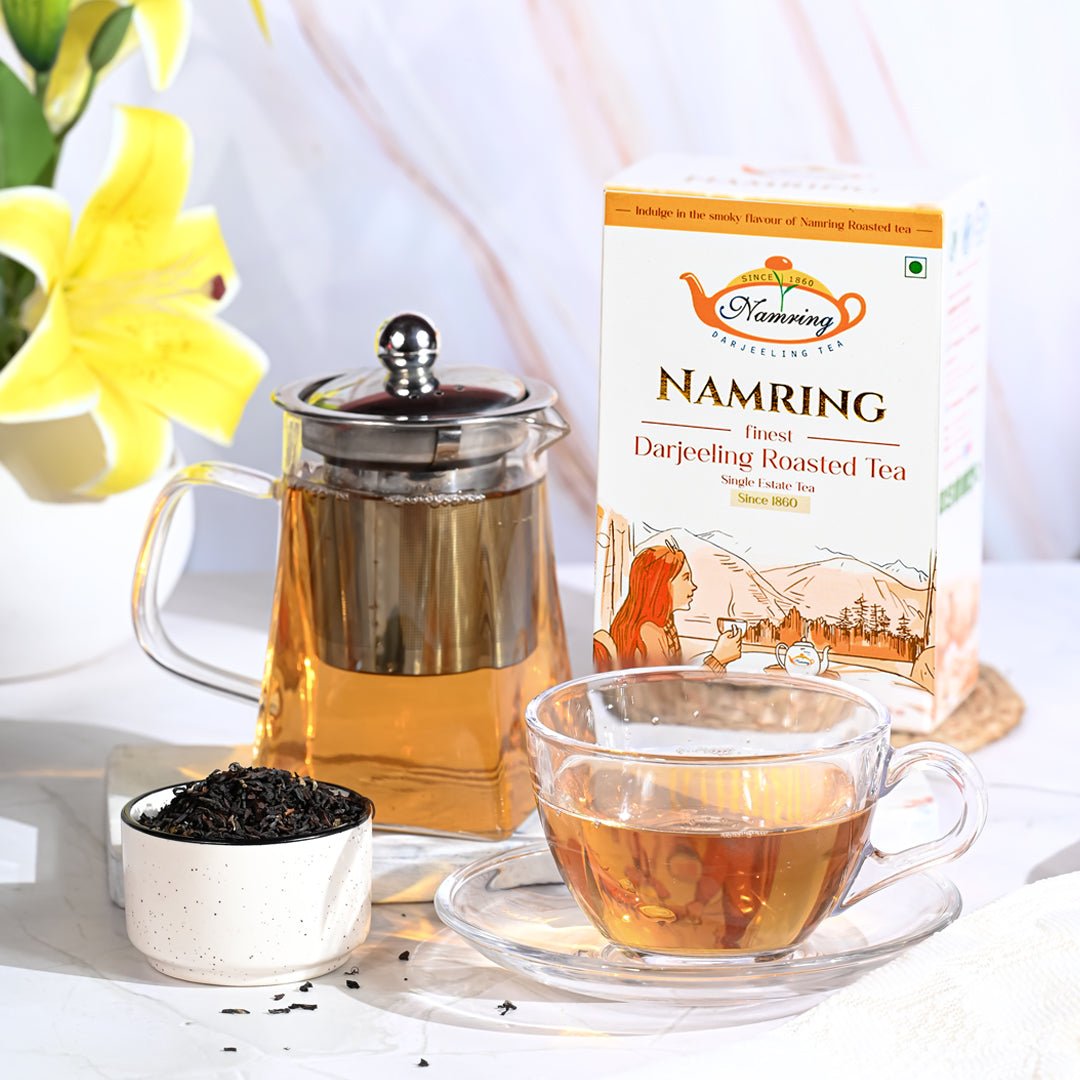
Roasted Tea: A Bold, Toasty Journey for Your Senses
Share
When it comes to tea, most people think of fresh green leaves or floral infusions—but roasted tea offers an entirely different, bold experience. With its rich, smoky aroma and warm, toasty flavors, roasted tea is a comfort drink that appeals to those seeking something earthy and unique. Whether you're new to tea or a seasoned enthusiast, roasted teas are worth exploring.
What is Roasted Tea?
Roasted tea refers to any tea that undergoes heat treatment, typically over charcoal or in an oven, during or after processing. This roasting transforms the tea’s color, aroma, and flavor, resulting in a deep, nutty, and slightly smoky profile.
Roasting is especially common in China, Japan, and Taiwan. Each region has its own unique style of roasting, offering distinct tea experiences.
Popular Types of Roasted Tea
Hōjicha (Japan)
Hōjicha is usually made from bancha or sencha. It is pan-roasted at high temperatures, resulting in a toasty, nutty flavor that is low in bitterness and naturally low in caffeine. The brewed liquor ranges from light brown to reddish in color. In Japan, Hōjicha is often served in the evening or after meals due to its soothing nature.
Tie Guan Yin (Roasted Oolong – China/Taiwan)
Tie Guan Yin is an oolong tea that undergoes light to heavy roasting, depending on the desired flavor profile. It offers fruity, caramel-like, and floral notes with smoky undertones. The liquor color ranges from golden to dark amber.
Da Hong Pao (Wuyi Rock Tea – China)
Da Hong Pao is a Wuyi oolong tea that is charcoal roasted. It has a robust, mineral-rich flavor with roasted fruit notes. It is one of the most revered and expensive Chinese teas, known for its depth and prestige.
Why Choose Roasted Tea?
Roasted tea is warm and comforting, making it ideal for cold weather or cozy evenings. The roasting process reduces bitterness, resulting in a smooth and mellow flavor. It offers aromatic complexity, with notes of cocoa, roasted nuts, wood, and caramel. Roasted teas are also rich in antioxidants. Teas like Hōjicha are naturally low in caffeine, making them perfect for relaxation.
Brewing Roasted Tea: Quick Guide
| Tea Type | Water Temp | Steeping Time | Notes |
|---|---|---|---|
| Hōjicha | 85–90°C | 1–2 minutes | Can be steeped multiple times |
| Tie Guan Yin | 90–95°C | 2–3 minutes | Use a gaiwan or teapot |
| Da Hong Pao | 95–100°C | 3–4 minutes | Rinse leaves before brewing |
Tip: Roasted teas can also be cold-brewed for a refreshing summer drink with a toasty twist.
Storing Roasted Tea
Store roasted tea in a cool, dark place. Use airtight containers, as roasted tea easily absorbs surrounding odors. For the best flavor, consume it within six to twelve months.
Final Sip: Why You Should Try Roasted Tea
Roasted teas offer a soul-warming experience unlike any other. Whether you're winding down after a long day or embarking on a unique tea tasting journey, the rich, toasty depth of roasted tea is sure to satisfy.
Did You Know?
In Japan, Hōjicha is often served to children and the elderly due to its low caffeine content and soothing nature.
Let’s Talk Tea
Have you tried roasted tea? Share your favorite type or brand in the comments below and let’s chat all things tea!
